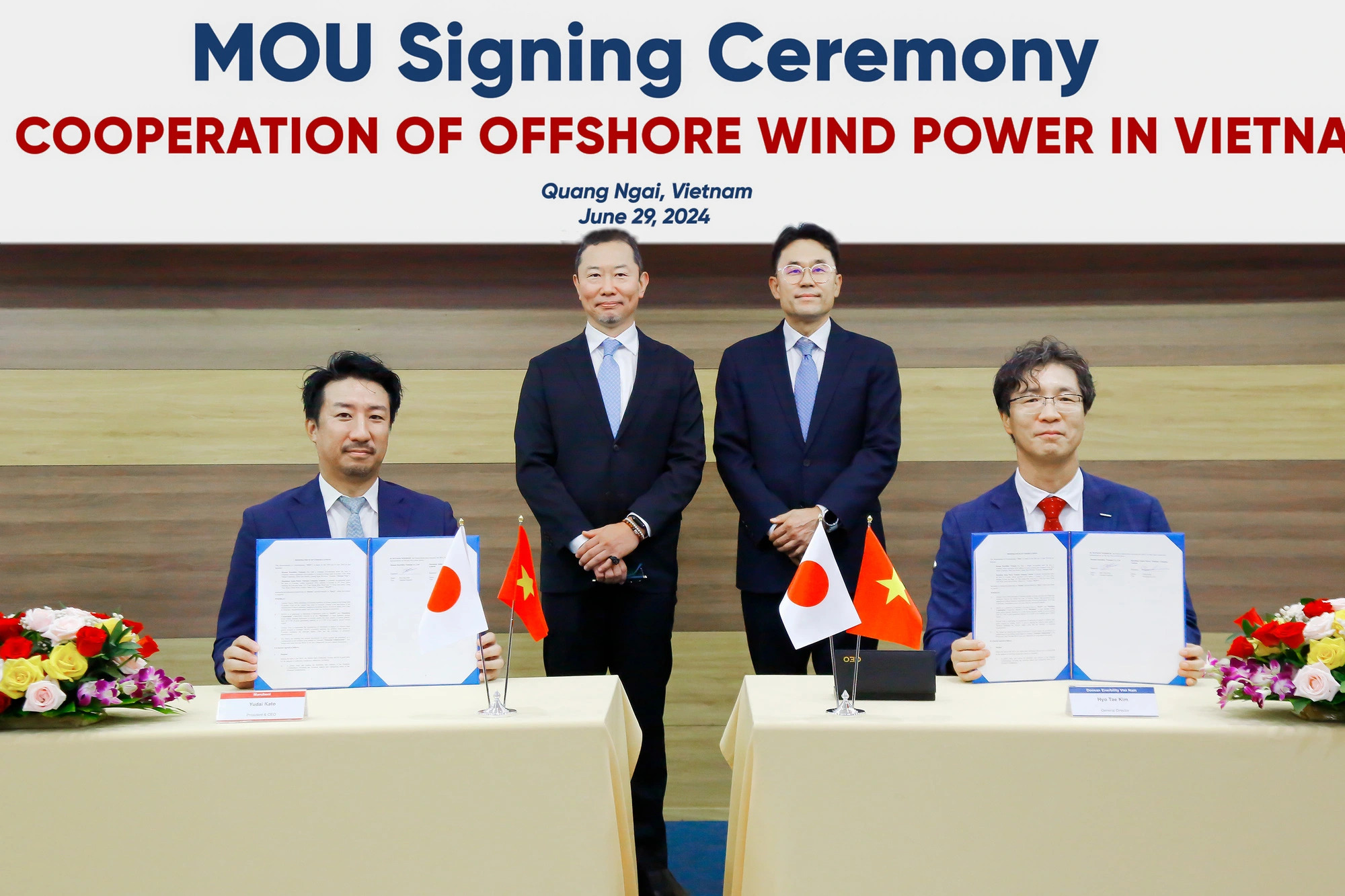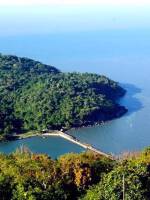
Speaking at the signing ceremony, Kim Hyo Tae, general director at Doosan Vina, said that the cooperation is part of the company’s efforts to help fulfill the net-zero emission goal by 2050 that Vietnam announced at the 26th United Nations Climate Change Conference (COP26) held in Glasgow in 2021.
This MoU along with another one earlier signed between Doosan Vina and Ørsted, a Danish renewable energy company, will pave the way for Doosan Vina to tap into the renewable energy industry.
Doosan Vina is shifting its focus to investment strategies that align with sustainable development goals, Kim said, adding that Vietnam boasts great natural resources like ocean, wind, and solar power to develop renewable energy projects.
Seiji Kawamura, general manager of the overseas power department (Asia-Pacific) under Marubeni Corporation, underlined the importance of offshore wind power in the corporation’s business strategies.
With its 50 years of operating in the power industry in Vietnam, Marubeni looks to make contributions to the country’s economy and state budget, the Marubeni representative said.
Following the MoU signing, Doosan Vina and Marubeni will study the feasibility of their cooperation in the industry in Vietnam.
Doosan Vina plans to manufacture monopiles as offshore wind power foundations and other components for offshore wind farms at its 100-hectare industrial complex in the Dung Quat Economic Zone.
Marubeni is set to explore the opportunity of expanding its cooperation with other Vietnamese firms to boost the offshore wind power sector in Vietnam.
Doosan Vina and Marubeni are strategic partners in the power industry in the Asia-Pacific region.
Both sides had successfully developed the Nghi Son 2 BOT thermal power plant in Thanh Hoa Province, north-central Vietnam, with Doosan being the general contractor and Marubenie being a member of a consortium comprising three investors, namely Marubeni, South Korea’s Korea Electric Power Corporation, and Japan’s Tohoku Electric Power Company.
Doosan Vina is a US$300-million industrial complex which spans 100 hectares in the Dung Quat Economic Zone.
The company specializes in manufacturing modules, cargo container cranes, steel structures, and power plant equipment.
In Vietnam, Doosan Vina has served as an EPC (Engineering, Procurement and Construction) general contractor of major thermal power plants such as Mong Duong 2, Vinh Tan 4, Nghi Son 2, and Song Hau 1.
Regarding Marubeni Corporation, it is one of Japan’s largest trading and investment companies, with more than 160 years of history.
In the renewable energy industry, Marubeni has developed onshore and offshore wind farms with a combined capacity of over 2,000MW in many countries including Japan and the UK.
In Vietnam, Marubeni served as an EPC general contractor for 11 power plant projects, such as the Thai Binh 1 thermal power plant in northern Thai Binh Province and the Nghi Son 2 BOT thermal power plant in north-central Thanh Hoa Province.
Hong Ngan – Tran Mai




